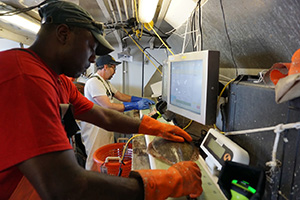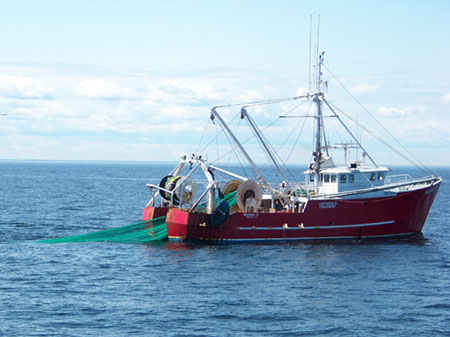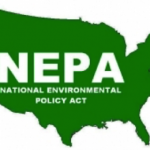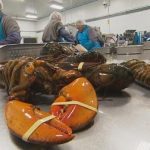Tag Archives: cooperative research program
2017 Sweep Efficiency Study Targets Summer Flounder – Cooperative research program effort reveals a few surprises
 Testing the efficiency of different sweep types on fishing nets was the focus of twin trawling operations August 18-28 aboard the F/V Karen Elizabeth from Point Judith, RI. Chris Roebuck and his four-person crew aboard the 78-foot western-rigged stern trawler Karen Elizabeth conducted this year’s study with five staff members from the NEFSC’s Northeast Cooperative Research Program and the Fisheries Ecology and Oceans and Climate branches. The team targeted summer flounder in Southern New England from Montauk, Long Island to Nantucket and red hake in the western Gulf of Maine off Cape Ann, making a total of 103 good tows and collecting over 73,000 fish from species targeted by the study. click here to read the story 11:41
Testing the efficiency of different sweep types on fishing nets was the focus of twin trawling operations August 18-28 aboard the F/V Karen Elizabeth from Point Judith, RI. Chris Roebuck and his four-person crew aboard the 78-foot western-rigged stern trawler Karen Elizabeth conducted this year’s study with five staff members from the NEFSC’s Northeast Cooperative Research Program and the Fisheries Ecology and Oceans and Climate branches. The team targeted summer flounder in Southern New England from Montauk, Long Island to Nantucket and red hake in the western Gulf of Maine off Cape Ann, making a total of 103 good tows and collecting over 73,000 fish from species targeted by the study. click here to read the story 11:41

Northeast Cooperative Research Program Review
The Northeast Fisheries Science Center initiated an independent review of its Northeast Cooperative Research Program in 2016. The final reviewer report, NEFSC response, and action plan are now available and posted below. The review found that the NCRP has demonstrated success working with fishing industry partners on research that can improve fishery science and management. Examples include long-term efforts like the NEFSC study fleet, development of electronic reporting tools for catch and environmental data, enhanced sampling opportunities of fishery resources, and specialized industry-based survey collaborations. Click here to continue reading. 16:10
CSF STATEMENT ON EXPERIMENTAL GBYTF FISHERY Presented to New England Fishery Management Council
 Dr Rothschild stood before the NFMC yesterday, and read this statement. The status of groundfish stocks in New England is shrouded in considerable uncertainty. This uncertainty often raises the question as to whether stocks that are claimed to be overfished are actually overfished or vice versa. Uncertainty in this determination reflects in turn whether management regulations intended to correct these characterizations are effective. Read the Statement here 10:53
Dr Rothschild stood before the NFMC yesterday, and read this statement. The status of groundfish stocks in New England is shrouded in considerable uncertainty. This uncertainty often raises the question as to whether stocks that are claimed to be overfished are actually overfished or vice versa. Uncertainty in this determination reflects in turn whether management regulations intended to correct these characterizations are effective. Read the Statement here 10:53












































